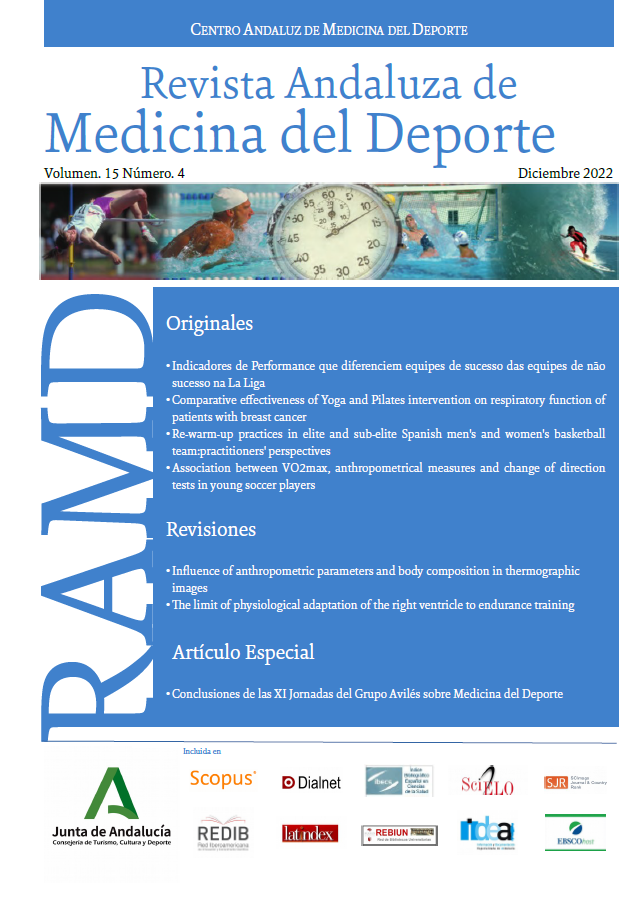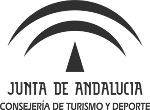Re-warm-up practices in elite and sub-elite Spanish men's and women's basketball team:practitioners' perspectives
Abstract
Objective: Research suggests that an active re-warm-up (RW-U) during half-time improves performance capacity in team sports, despite limited evidence in basketball. This study aimed to identify the practice of RW-U activities during the half-time period in elite and sub-elite Spanish men's and women's basketball teams.
Methods: We asked strength and conditioning coaches from all teams competing at ACB, LF, LF2, LEB Oro, LEB Plata and EBA leagues during the 2020/21 season to fill in a web survey.
Results: All respondents reported familiarization with the RW-U concept, although 45% only reproduced traditional strategies. Half of the coaches indicated that they always performed some activity, while the other half pointed out lack of time (45.7%) and player demands (62.9%) as the main constraints impeding its regular use.
Conclusion: Spanish basketball teams continue to reproduce traditional practices of active re-warm-up during half-time, regardless of their competitive level.


